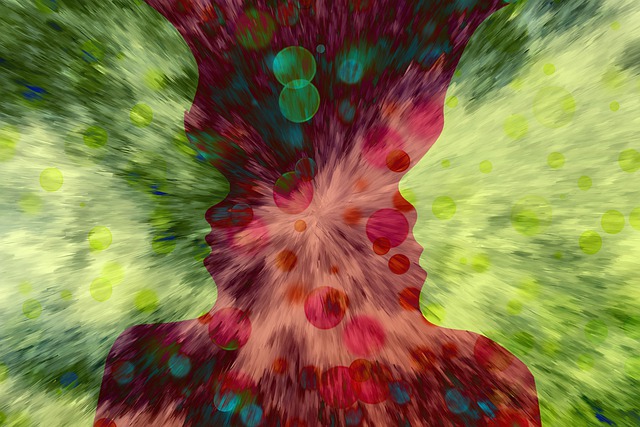There is a healthy relationship and the one you call a trauma bond. While love sets you free and liberates your soul, the trauma bond makes things compassionately complicated. In trauma bond vs love, it is important to understand the basics and recognize the red flags as they lie before you. Taking deep notice of the major differences will help you understand important parts of your own relationship and proceed toward a better future. Continue with your reading task to get a detailed understanding of the same.
What Is Trauma Bonding?
Trauma bonding is an attachment between two people where one partner is significantly strong than the other. Often, in a trauma bond, the victim develops a deep emotional attachment towards the abuser. In the relationship, what one person feels for the other is surface-level intimacy, typically resulting from an abusive cycle. A definitive example is that of IPV (Intimate partner violence) victims who still choose to stay with their partners even after being abused and molested by their significant other.

Reasons People End Up In A Trauma-Bonding Relationship
In a trauma bond relationship, it is always about intense emotions and vicious cycles of abuse. When debating trauma bond vs love, people tend to misinterpret their traumatic experience as pure love, as their brain is focused on surviving for the moment. It gets easy to be attached to someone when there is positive reinforcement from the other end after a negative episode.
Both parties, or at least the victim, can understand the pattern. However, they fail to break free when the relationship is between an empath and a narcissist. Usually, an empath pours out all their emotions, trying to change the narcissist. But the latter, being their true self, fails to acknowledge the positive reinforcement and takes advantage instead. A narcissist always misjudges the compassion of an empath to be their weakness.
Since any particular definition does not define true love, the empath seeks codependence in the relationship, leading to deeper attachments and more trauma. The empath keeps debating the relationship’s existential base, trying to categorize it as a trauma bond or love. But also on the other hand, they keep searching for a positive ray of hope, which they would take as a sign to continue in the relationship.
Trauma Bond vs Love – How To Understand The Key Differences?
Trauma bonds are quite difficult to avoid for people who have been subjected to a traumatic situation all their lives or are empaths by nature. The victim’s mind is always driven by the ideas of survival and reproduction. In the meantime, they fail to acknowledge the negatives. These people get addicted to the relationship because trauma bonds are highly unpredictable. And always comes with a mix of fear yet mutual connection.
Also, because movies and daily soaps have normalized such behaviors, it gets difficult for someone not to categorize trauma bonds as true love. At one time, the abuser is well-connected and predictable, while the next second, he/she just flips out. Moving on, here are a few points to help you better understand trauma bond vs love.
Relationship Pace
The very sign that you are in a trauma bond is that you are physically attracted to each other more than anything. There are phases when the other partner with a flip personality, love, bombs the victim suddenly. From outrageous gifts to compliments, everything is readily available. The victim understands these are too good to be true but fails to ignore them.
When you take time, go slow, and try to figure out each other merely on emotional availability rather than gifts and compliments, finally, true love blossoms. There is no word in the relationship known as love bombing. Instead, the partners choose to open up to each other slowly.

Feelings
A trauma bond with time turns out to be highly addictive. The victim does not know when they will get the next reward. So, to receive the same, they continue to be in the relationship, digesting abuse. When they receive the reward, the victims feel grateful. Otherwise, they tend to indulge in self-sabotaging behavior.
A relationship based on nothing but mutual liking and love feels like a constant privilege. The partners always feel in sync with each other regarding intimacy and connection. They feel lucky and thankful to share such a wholesome bond.
Dependence
Bonds, signified by traumatizing behaviors, have co-dependency between the partners. The victim is usually forced to co-depend on the abuser under circumstances like torturing, blackmailing, manipulation, and gaslighting.
When it is love, you just healthily interdepend on each other. They complete each other emotionally while being steady in their own periphery. These people work together, making each other happy and emotionally fulfilled.
Intensity Of Highs And Lows
You are trapped in a trauma bond if your relationship has extreme highs and lows. There are moments when you are extremely fearful and doubtful about your partner’s intentions. However, on the very next day, you see a great connection.
However, looking deeper into trauma bond vs love, you will not find something like this in a relationship where the connection is real. It’s only based on love. There will be no such extreme highs or lows. Instead, every day will be filled with mutual affection and care.
So that is all about the difference between trauma bond vs love. While the former feels like a burden, the latter is wholesomely fulfilling. However, it is one’s personal choice which bond they will settle for. Till then, be aware of red flags and stay away from narcissists.



